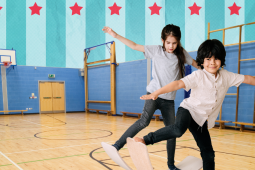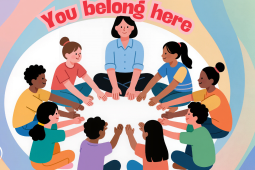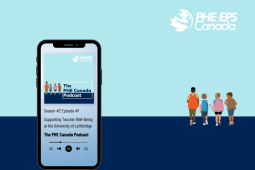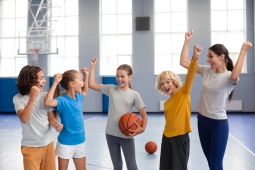Teacher to Teacher: Apps for Assessing and Coaching Students

Previously published in Volume 83, Issue 4
Being a health and physical educator is rewarding. Your work has an impact on the lives of your colleagues, your students, their families and their communities.
But it’s also a career with its challenges. We want our members to be able to connect and share how they handle the issues that come up in their classrooms and schools so we can all continue to learn and build our professional repertoires together.
In this section of the Journal, we feature questions posed by teachers (by way of social media or email), and answers directly from their colleagues.
Question: Can you recommend any apps to help coach and assess students' performance in PE class?
In response to this question, teachers across the country offered up the following tech tool ideas:
Balance It: An app with more than 60 drawings designed to develop students' skills within a wide variety of individual and group balances. The balance activities increase in difficulty thorughout the app, allowing students to progress at their own pace.
Blacktop PE: I find I can keep track of just about everything with this app. It has more than 130 skills and fitness assessments, from basketball dribbling to wall sit and mile run, plus a ton more. It also looks after attendance and participation and offers standards-based based reporting for every student.
CoachNote: An app for visually showing students (or athletes) how to play a game or work on game tactic strategies. You are able to put little icons on the playing area such as different colored shirts, cones, balls, as well as text on the screen. You are also able to record your voice and make a video out of it.
Coach's Eye: Get instant and detailed feedback for students. Record on any device, analyze with slow-motion playback and share results immediately.
Hudl Technique: Another slo-mo tool used by coaches in more than 50 sports to improve performance through analysis. Use any device to record, then compare an athlete’s motion to a professional’s, frame by frame.
Teachers also recommended a few sites and articles with long lists of PE-approved apps:
http://physedreview.weebly.com/pe-tool-apps.html
http://www.supportrealteachers.org/iphoneipad-apps.html
Do you have a question you'd like answered?
Want to crowd source an answer to a tough question? Feel free to send along any questions to [email protected].








